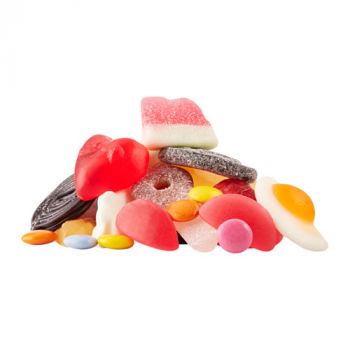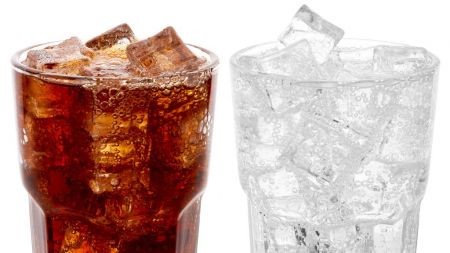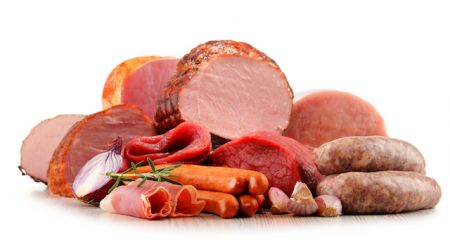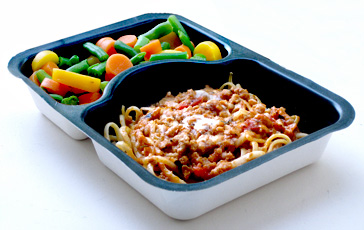Food a Nutritionist Would Never Eat!

One of the first things to think about when you’re interested in living a healthy lifestyle is the food that you eat on a regular basis. You would be surprised to learn that even if you were to work out 7 days a week and eat junk food every day, you wouldn’t be healthy by any means. The best way to figure out how to revolutionize your eating habits is to think about the things that nutritionists not only recommend, but the things that they advise against because if a nutritionist would never eat it, then it’s certainly not good for you.
Below is a list of the top 10 things a nutritionist would never eat, and you shouldn’t either!
1. Candy
We all have at least one moment in our lifetime where we crave something obscenely sugary and sweet, which is what could lead us to want to binge on candies. From licorice all sorts to gummy worms, there are hundreds of different types of candies that may tempt you, but if there’s one thing that all nutritionists agree on it’s that they refuse to touch candy of any type, simply because of its sugar content.

As a component that has no nutritional value whatsoever, it’s important that you don’t fill your stomach with something that isn’t going to benefit your body in any way. It’s best to just avoid as many sugars as possible because all they’re going to do is turn directly into fat.
2. “Diet” Anything
We all know the gimmick; if you’re looking to lose weight then you should definitely look into diet foods because they don’t have any calories, or low calories. Unfortunately, this isn’t the way that food works, especially when you’re dealing with manufactured products. Companies have to make their diet foods appetizing and as a result, they are packed with preservatives and artificial sweeteners that are worse for our bodies than the real thing.
The more diet products you eat, the more likely you are to crave items with real sugars and real fats, not to mention the artificial ingredients are incredibly disruptive to gut health.
3. Soda and Carbonated Drinks
From Red Bull to Coke, carbonated drinks can be incredibly damaging to your overall health, especially when it comes to packing on the calories. In fact, the vast majority of people who are finding it difficult to maintain their calorie intake are most likely drinking more calories than they’re eating.

It’s always better to keep your beverages as natural as possible, such as water, or water flavored with your favorite fruits and vegetables. Even fresh pressed juices are a better alternative to those from concentrate.
This is especially true when it comes to energy drinks as they are filled with a variety of sugars and unhealthy substances that are designed to “keep you awake”, when in reality, there are plenty of natural alternatives such as espresso and matcha tea.
4. Store-Bought Condiments
Although it can be tempting to douse healthy foods in things such as barbecue sauce and ketchup, it could very well negate all of the hard work you put into making healthier meals. Store-bought condiments are incredibly dangerous when it comes to sugars, especially ketchup and sweet sauces. Plus, instead of choosing condiments you can choose vegetables that offer the same flavor but without all of the processed ingredients.
However, if you find that giving up store-bought condiments is too much to ask for, there are alternatives that are healthier than others. For example, opting for mustard and hot sauce instead of ketchup and sweet sauces will be more nutritious.
5. Processed Meats
Processed meats are certainly easy, especially when you’re throwing your lunch together in the morning; however, they’re some of the unhealthiest things that you can ingest. Processed meats can range from anything such as hot dogs to salami, but the biggest thing to look out for are processed meats with high levels of fat. The main thing to remember is that they’re called “processed” for a reason, typically because there are several different cuts of meat thrown in together. This means you might have a few lean portions but mostly fatty portions that the average consumer wouldn’t want to eat.

It’s better to focus your efforts on foods that don’t have empty calories and that will not increase your cholesterol levels.
6. Store-Bought Microwave Popcorn
Are you getting ready to indulge in an evening with friends and family as well as a giant bucket of popcorn? You might want to take the time to read the ingredient label as well as the nutritional facts prior to engorging on an entire bag to yourself. Store-bought microwave popcorn is incredibly unhealthy not only for its soaring levels of sodium, but also because of the processed ingredients used to add a buttery flavor and ideal texture.
With that being said, not all types of popcorn are bad as there are plenty of ways that you can make your own popcorn at home without the worry of artificial ingredients. By buying the natural kernels and finding a healthy topping of your choice (we like coconut oil) you can transform an otherwise unhealthy treat into the perfect thing for your next date night.
7. Low-Fat Peanut Butter
It’s commonly known that peanut butter is packed with many fats, but as mentioned earlier, anything with the “low-fat” label typically means that in an effort to cut back on calories, there are a wide variety of artificial sweeteners to be found in its ingredients. There’s nothing worse than imagining a world without the sweet and nutty spread, but there are alternatives for you to take into consideration.
As an example, natural peanut butter offers a smoother and richer taste, not to mention that it doesn’t include any artificial sweeteners or any additional sugars that are simply going to transform into fat. In fact, you might find that you prefer the taste of natural peanut butter when compared to the sugary kind.
8. Frozen Meals

Sure, the idea of throwing a frozen dinner into the microwave at the end of the day seems simple enough, but did you ever consider the sheer amount of preservatives that must be in its ingredients to help prevent the ingredients from deteriorating? Aside from generic additives, you’ll also find that frozen meals are packed with high levels of sodium and refined flours, two components that are only going to force your waistline to expand as well as cause damage to your organs.
Pin for later

